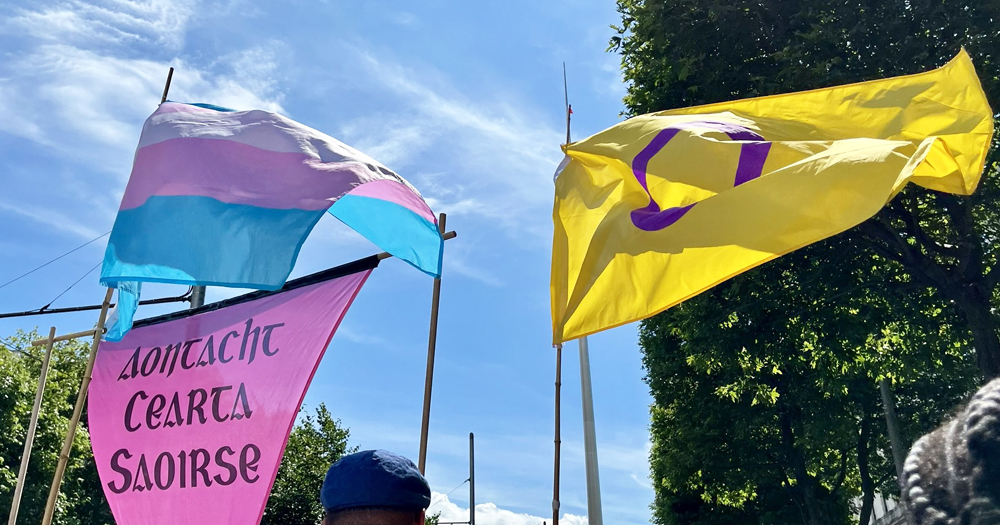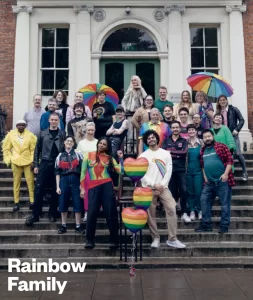Following the United Nations’ adoption of the historic declaration to protect the rights of intersex people, Intersex Ireland takes a look at the situation the community faces in the country.
We at Intersex Ireland were overjoyed in April of this year by the United Nations’ declaration at the 55th session of the Human Rights Council to combat discrimination, violence, and harmful practices against intersex persons. This is very big news.
We appreciate all the hard work by our colleagues in Organisation Intersex International Europe (OII Europe) and around the world that went into bringing this declaration to fruition. This was no easy feat.
Intersex people are largely a hidden population for reasons that include cultural erasure, shame, stigma, fear of discrimination, and duplicitous, harmful medical practices and procedures initiated by psychologist Dr John Money in the 1960’s.
We are grateful too to see that Ireland is one of the sponsors of this declaration which gives us hope for an improved relationship between intersex people in Ireland and the Irish state going forward. To date, intersex people’s relationship with the Irish state has been an uneasy one, to put things mildly.
For example, Female Genital Mutilation (FGM) is rightfully outlawed in Ireland. FGM is a term used to describe irreversible, harmful, surgical procedures, such as surgical reduction or removal of the clitoris, for social rather than medical reasons.
Identical procedures, however, are regularly performed on intersex children in Irish hospitals with no such outcry and without fear of legal repercussions. Due to the similarity of these procedures to FGM, intersex people refer to these procedures as IGM or Intersex Genital Mutilation. While the HSE has an entire page dedicated to FGM on its website, there is nothing about the IGM it performs on Irish intersex infants.
Visualizza questo post su Instagram
The UK’s NHS has intersex information on its website, although it uses pathologising language to describe naturally occurring intersex variations as disorders. There is nothing about intersex variations on the HSE website, even though approximately 1.7% of Ireland’s population is intersex, as it is in other countries according to the United Nations and other experts.
IGM and other medical procedures, such as the castration of intersex children, were officially declared to be torture by the United Nations Special Rapporteur on Torture in 2013 due to the irreparable damage they have been documented to cause to sexual, reproductive and urinary capabilities of intersex people and the negative impacts on their quality of life and mental and physical health.
Higher rates of disability are associated with some forms of IGM, meaning that there are intersex people in Ireland battling intersectional difficulties stemming from it and in addition to other difficulties they may face.
Recent studies show that self-reported rates of attempted suicide are much higher amongst intersex people than amongst the general population. However, intersex people often report encountering mental health professionals who are ill-equipped to deal with their trauma or not knowledgeable about intersex at all. Intersex people in Ireland report encountering mental health professionals who are unaware that transgender and intersex are not the same thing.
While not all intersex people are transgender, many are, meaning that intersex people in Ireland who are also transgender are expected to rely on what has been described as the worst healthcare for transgender people in Europe.
Visualizza questo post su Instagram
In response to parliamentary questions submitted by Intersex Ireland, the HSE has claimed that the standard of intersex healthcare is of a very high quality. While this is far from true in our experience, it would be worth questioning how the HSE could have allowed itself to provide top care in one area while providing the worst care in Europe in an overlapping field.
A health organisation that continues to perform IGM while ignoring the protests and concerns of intersex people affected by it cannot be taken at its word when it claims that it provides those same people an excellent standard of care. It’s just not true.
Intersex people in Ireland have to date been excluded from recent progressive gains in human rights, which is particularly unfortunate as we witness the looming, swelling spectre of fascism and the far-right stoked by Irish mainstream media, unchecked by Gardaí and government. Intersex people in Ireland need protections.
Intersex people continue to face street harassment, employment discrimination, housing discrimination and medical discrimination in Ireland.
We are however hopeful that Ireland, by taking the step this year of sponsoring the United Nations’ declaration to combat discrimination, violence and harmful practices against intersex persons, is entering a new era of listening to and working with its intersex people.
We look forward to the day when Ireland joins its neighbours; Malta, Germany, Portugal, Iceland and parts of Spain, in outlawing unnecessary, irreversible, nonconsensual surgeries on its intersex children and working toward a brighter, intersex-inclusive future for all of us.
This story originally appeared in GCN’s June 2024 issue 384. Read the full issue here.
© 2024 GCN (Gay Community News). All rights reserved.
This article was published in the print edition Issue No. 384 (June 1, 2024). Click here to read it now.
Support GCN
GCN is a free, vital resource for Ireland’s LGBTQ+ community since 1988.
GCN is a trading name of National LGBT Federation CLG, a registered charity - Charity Number: 20034580.
GCN relies on the generous support of the community and allies to sustain the crucial work that we do. Producing GCN is costly, and, in an industry which has been hugely impacted by rising costs, we need your support to help sustain and grow this vital resource.
Supporting GCN for as little as €1.99 per month will help us continue our work as Ireland’s free, independent LGBTQ+ media.

